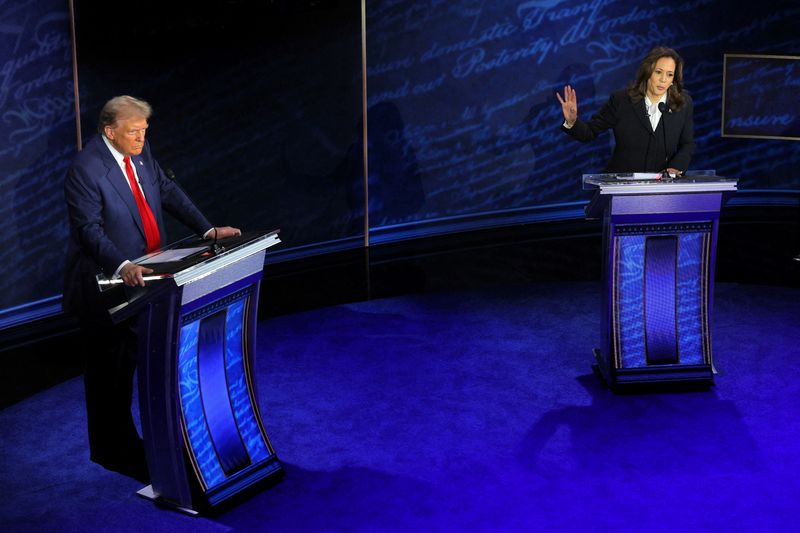By Tatiana Bautzer
NEW YORK (Reuters) - Most wealthy investors are considering changes in their portfolios ahead of the Nov. 5 U.S. presidential election, according to a survey by UBS released on Thursday. As investors focus on the economic policies of the candidates, 77% of them are considering new allocations, the survey found.
The economy is seen as the most important issue in the election by 84% of investors, and they are split on which candidate would better handle it. Fifty one percent of wealth clients surveyed said Republican candidate Donald Trump would handle the economy better, while 49% said Democratic candidate Kamala Harris would do better.
The respondents who said Trump would handle the economy better cited the former president's approach to taxes, lower business regulations and immigration policy. The group favoring Harris on the economy cited the vice president's policies for the middle class, healthcare, green energy and preservation of the independence of the U.S. Federal Reserve.
Healthcare, materials, sustainable investing and technology companies could benefit from potential Harris policies, according to most investors surveyed. The industries that would benefit more from a new Trump presidency would be defense, energy and industrials, they said.
Jason Katz, senior portfolio manager at UBS Global Wealth Management, said an increase in investors seeking guidance for their portfolios is common in all election cycles, but the bank is recommending a cautious approach.
"We advise against any drastic changes, either in investment or tax management," Katz said.
Historically, the U.S. equity market has shown similar returns regardless of which party wins the White House.
The economic outcomes will depend not only on which candidate wins the presidency, but also on the composition of Congress, according to Katz. Democrats currently control the Senate and Republicans have a majority in the House of Representatives.
A new Trump presidency could add to inflation by adopting import tariffs, while less regulation would create incentives to M&A transactions, with the biggest beneficiaries being financials and fossil fuel industries, Katz said.

If Harris wins with no Democratic control of Congress, potential tax hikes could be more difficult to approve, Katz added.
Katz said he expects regulation to remain stringent in a Harris administration, a circumstance that would affect mainly financials and fossil fuel companies. On the other hand, Katz said, companies focused on renewable energy and some industrial and material companies could benefit from her potential policies.